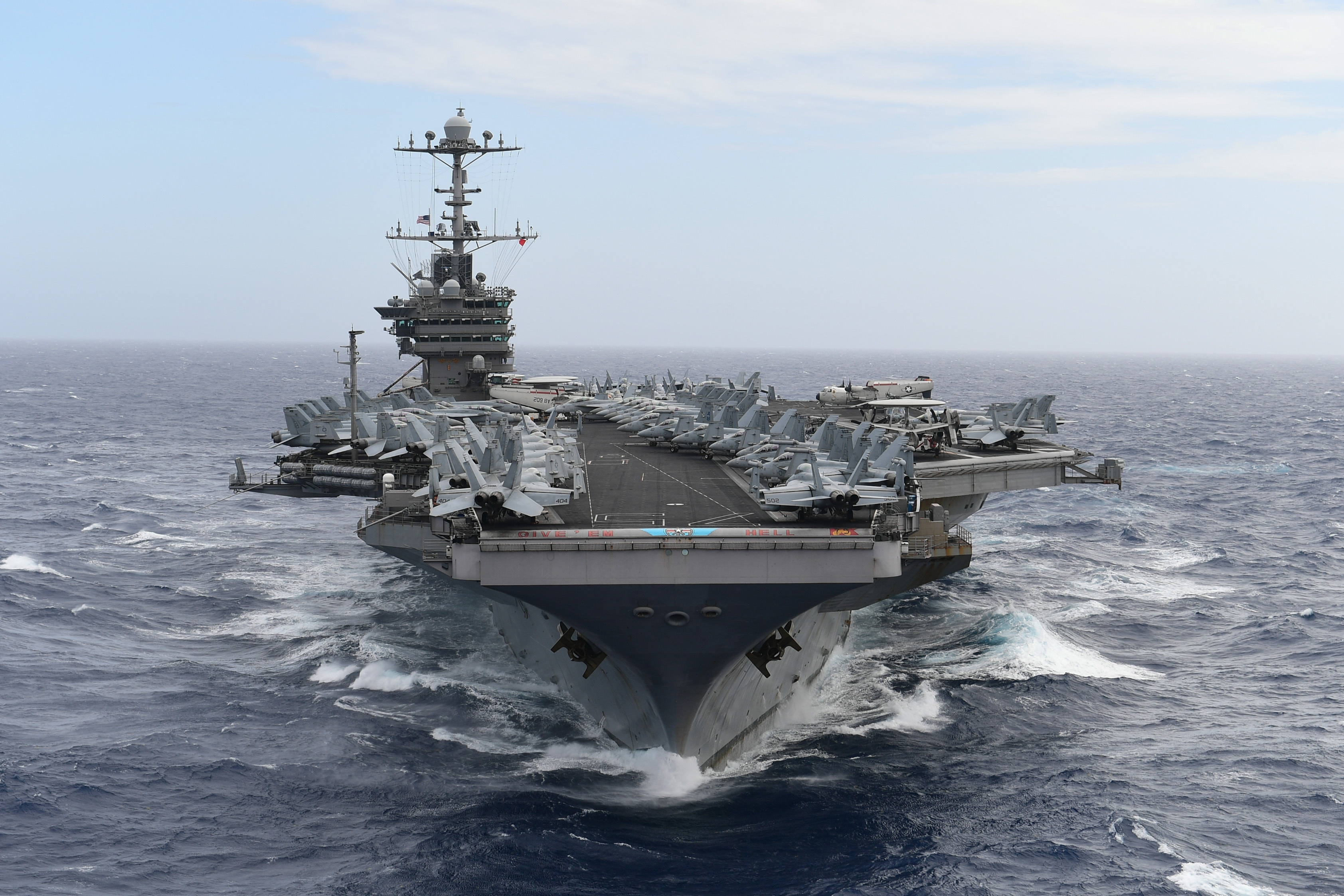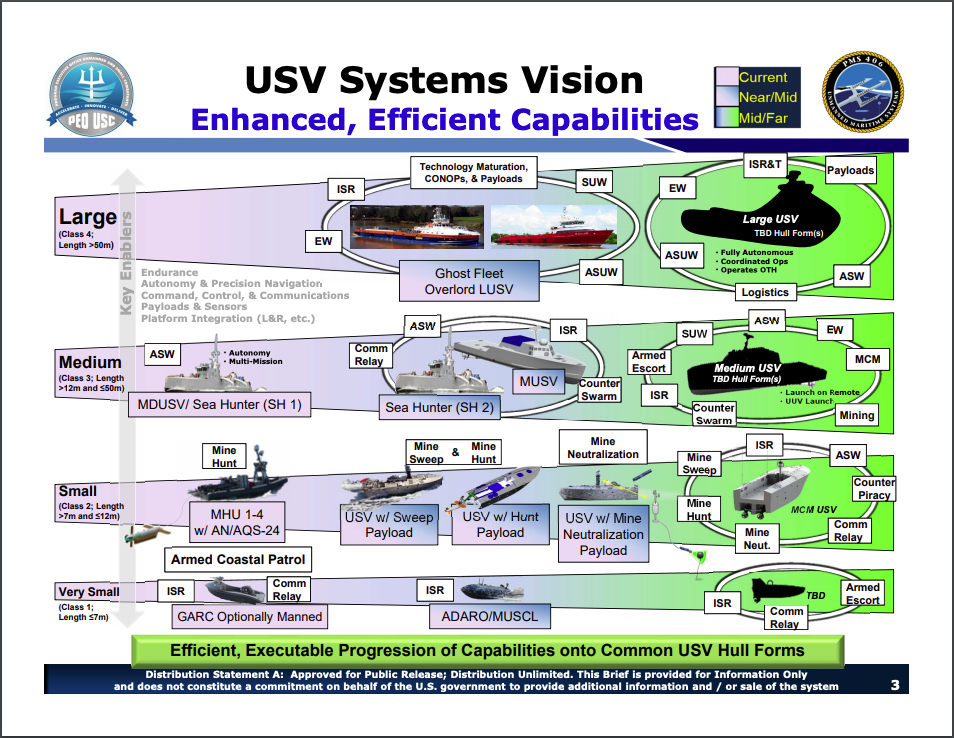
NATIONAL HARBOR, Md. – The Navy is unsure what spending items, if any, it will have to give up now that the White House has decided it wants to refuel aircraft carrier USS Harry S. Truman (CVN-75), but leaders are confident that the Navy will still find money to keep its unmanned surface vessels on track.
The Navy had originally proposed not refueling Truman halfway through its life, for a savings of about $4 billion on the refueling and complex overhaul but at the loss of about 25 years of service life for a Nimitz-class aircraft carrier. After much pushback from Congress, Vice President Mike Pence stated last week that the White House had changed its mind and wanted to keep the carrier – but Pence revealed no details as to where the money for the RCOH would come from. In the original budget proposal, money saved from not refueling the carrier would be funneled into research, development and fielding of new technologies such as unmanned platforms and hypersonic weapons.
Under Secretary of the Navy Thomas Modly said today that it is still “TBD” regarding what cuts would be made to pay for the RCOH over the next several years, but he added that the Navy and the Office of the Secretary of Defense are looking across all the services’ budgets for options.
“I assume, what I’m hearing is that they’re going to look for other ways to fund some of the modernization,” Modly told reporters after speaking at the Navy League’s annual Sea Air Space symposium. He said he did not expect that all the investments into future weapons would be cut, but he also could not say that all the planned investments would be protected.
“On that list of things that we’re looking to modernize, there are some things that have higher priority than others. So we’re going through that process right now to determine” what investments in future technology to try to protect, he said.
”There are some things within, we may be looking at ourselves and saying, maybe we should trade this off for that. And there’s also discussions at the OSD level about, across the Department of Defense. Because a lot of these priorities, with respect to modernization, were being driven by [the Office of Cost Assessment and Program Evaluation] and [Under Secretary of Defense for Research and Engineering Michael] Griffin, his modernization priorities.”

Modly reiterated that the Navy still believes rapid development and fielding of unmanned vessels and hypersonic and directed energy weapons is “critical,” and he said he hopes to see those investments remain funded. But, he noted there were many vocal members of Congress who believed Truman “still has half of its useful life left, let’s keep it going,” leading to the current budget standoff.
Capt. Pete Small, the program manager for maritime unmanned systems within the Program Executive Office for Unmanned and Small Combatants (PEO USC), also spoke at Sea Air Space and said he has spent the better part of the last month briefing lawmakers on the Large Unmanned Surface Vessel (LUSV), Medium Unmanned Surface Vessel (MUSV) and other programs that drove the Navy’s decision to cut a massive budget item to free up funding for investment in future technology. In sum, he said, his conversations with the Hill went well.
“We have broad Navy support, both from the requirements side of the house, the resourcing side of the house. We continue to see in wargaming and other scenarios that describe the near-peer conflict that we’re in now as the demand for these systems. So I’m confident that the demand for the systems as described by the new environment that we’re in, laid out in the National Defense Strategy and the CNO’s Design 2.0, is the driving impetus to continue to develop this portfolio of unmanned systems,” he said when asked if he thought the Truman RCOH reversal would threaten his programs.
“So I’m optimistic that, whatever happens with [the Fiscal Year 2020 budget], all of the efforts that I described are going to continue into the future.”





